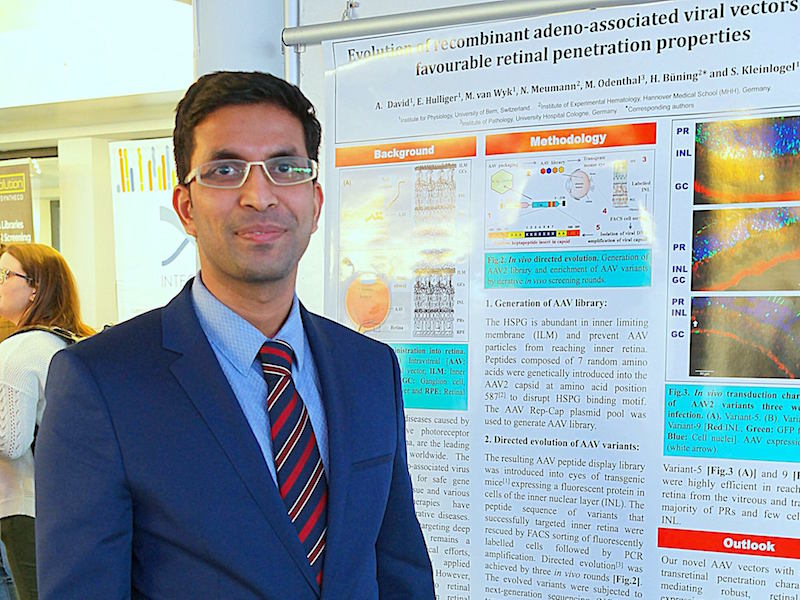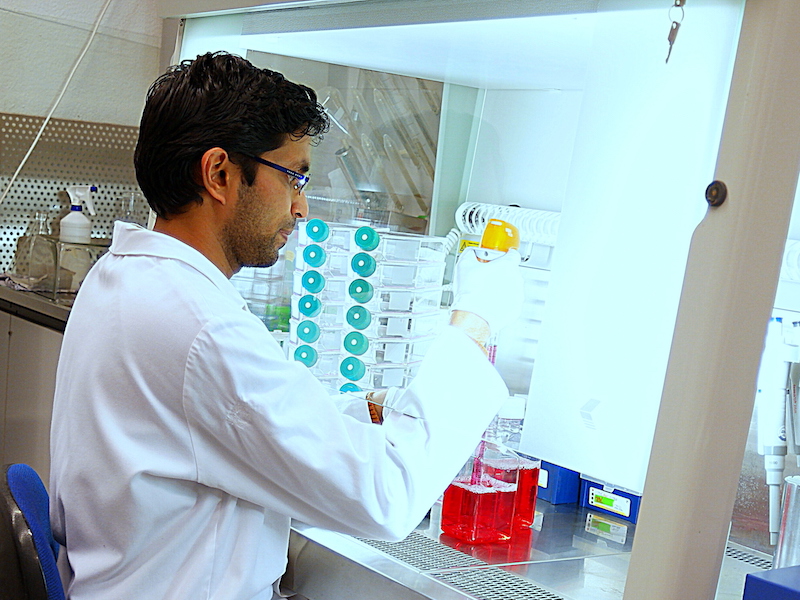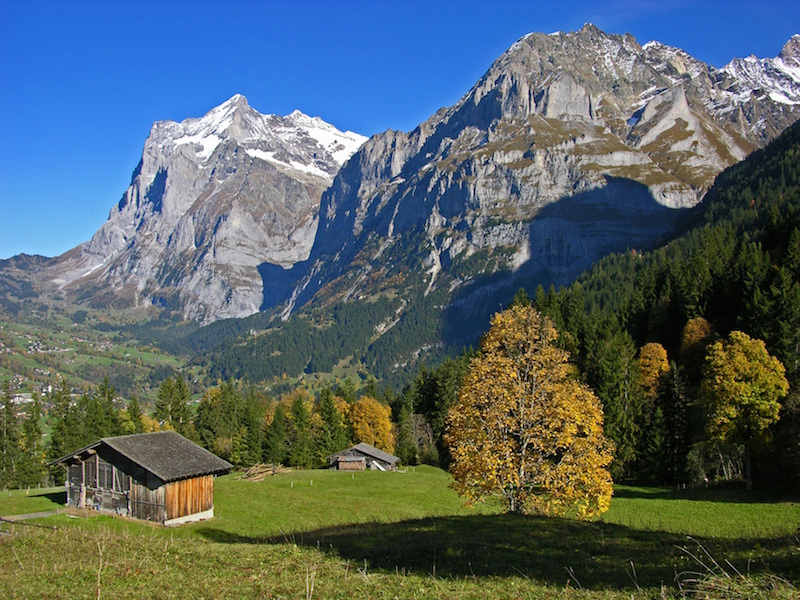This week we meet Anand David, alumnus class of 2013, who is sharing his experiences from his research career and life in Switzerland.
Q: You have a master’s degree in Molecular Biology from 2013, what have you been up to since you graduated from Lund University?
I moved to Fraunhofer Institute (Germany) to pursue my master’s thesis with support of Erasmus+ mobility programme offered by Lund University. After completion of my dissertation, I continued working at same Institute and lived in Germany for about a year. Later I moved to Switzerland to start a PhD, since the research topic was very interesting.

Q: What does a typical work day look like for you today?
I am about to complete my PhD in Biomedical Science. My project was focused on deriving viral vector for application in ocular gene therapy. A typical work day looks good when experiments are working fine. Otherwise, it can be quite stressful. I perform molecular cloning, cell culturing, viral vector production and microscopic imaging experiments. At times I worked for 14 – 16 hours at a stretch. Since cell culturing was involved in the project, I often had to work over weekends. After spending so much time in the lab, it’s such a strong addiction that I feel the lab to be my first-home. While writing my PhD thesis in the last 6 months, as expected I had to experience many sleepless nights.
Q: Within your field of research, what are the biggest challenges you meet?
To be successful within the field of biological research it’s important to be creative, innovative, persistent, patient and a quick learner to adapt to different techniques. Not all experiments work at first go, when they fail I have to go to the core of the topic and find the solution i.e. ‘Re-search’. It is also very important to have healthy hobbies.
The solutions to problems often did not occur when I was sitting and brainstorming at my desk, rather the ideas came when I was walking in nature. It was really important to let the brain wander and to find the way.
The key to success was to be proficient, develop my skill-set and to keep evolving. Good time management and multitasking was important to be more productive. I had to put work as top-priority to survive in research and learnt not be disappointed by failure. A PhD is just a training phase for a research career. Taking up post-doctoral projects or working in Industry will also require more commitment, presentation skills, fine balance between technical and soft skills.

Q: Has your Lund University education been beneficial in your work? In what ways?
I owe a lot to my education at Lund University. I could create a strong foundation from the well-designed curriculum that also integrated lot of lab exposure. It is very important to have such hands-on experience to feel confident about performing experiment. The professors and tutors maintained high standard of education. My tutor used to spend lot of time with me in the lab, during my applied project work. This inspired me to become like him and stay focused on work.
Likewise, excellent infrastructure was provided at Lund University and we had the opportunity to learn the latest technologies.
We had visits to different industries and research institutes that helped in networking. We had lectures from eminent scientists that motivated me to consider research as a career goal. I got to meet students from different parts of the world. Further the fame and recognition of Lund University helped me to find research opportunities in good research labs in different countries. Since I belonged to this prestigious institution, I was expected to deliver best performance. That was instrumental in bringing out the best in me. I would be very happy to find a post-doctoral research position at Lund University.

Q: What is your best travel advice for someone planning to visit Switzerland?
I would say, carry little more than you intend to spend. Eating outside will be most expensive of all. The water from fountains that you find in major cities is drinkable, so carry a refillable water bottle. Your experiences will be different based on season, so decide what you actually want to explore. Cheese lovers must try fondue and raclette. Buy Swiss chocolates from the supermarket, not from souvenir shops. By planning your trip well and booking in advance, you can save a lot. For instance flying to Zurich and then taking train to Bern will save you more than 60 Euros as compared to flying directly to Bern. Do carry your rain-wear in summer. Make use of one-day travel pass, it’s very economic to see multiple destinations with different modes of transportation. Lastly, think twice before taking a taxi.
